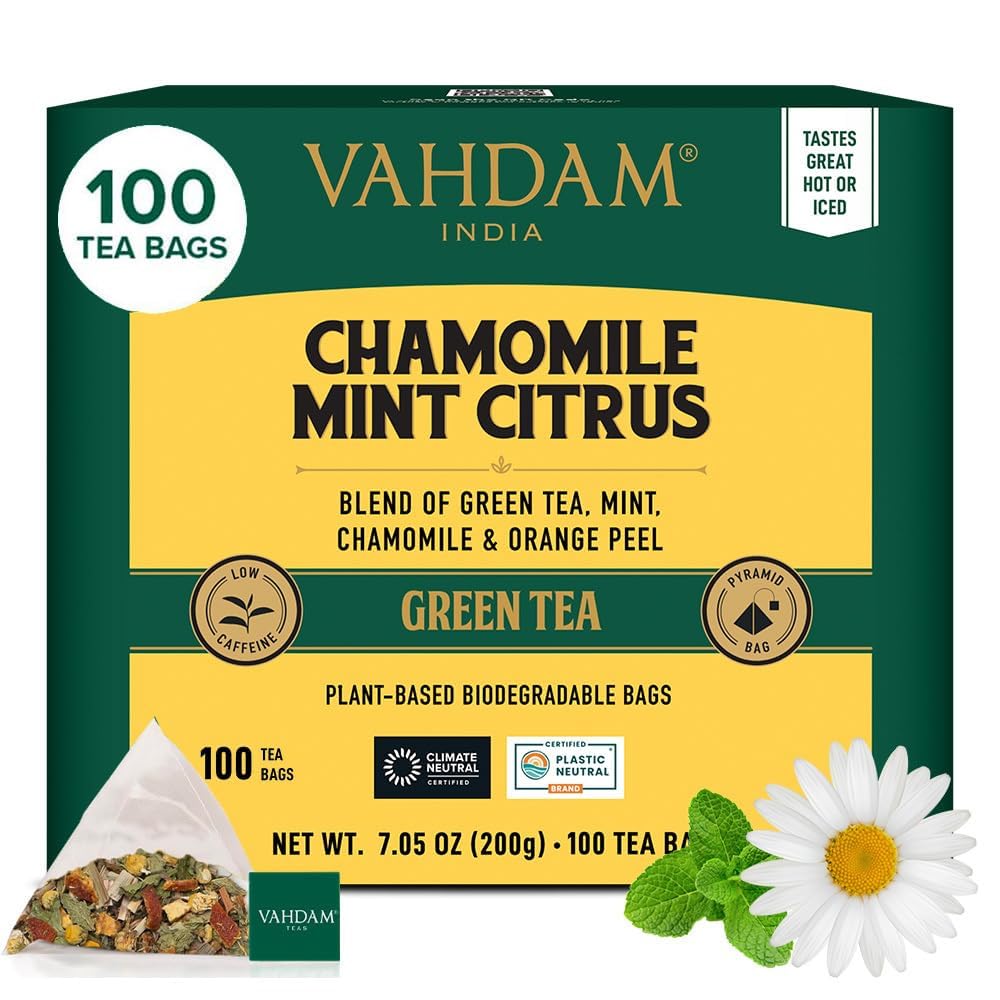Are you sure you’re making it the right way? If your green tea ends up tasting grassy or bitter, then hold up... you’re making it wrong and you might be missing out on the complete experience.
So today, we’ll explore three easy green tea recipes. A note of gratitude at first, to the Emperor of China, Shen Nong. He is said to have discovered the joys of green tea (around 2737 B.C) when a few leaves of a tea tree fell into his hot water, thus changing its color and taste and creating a surprisingly refreshing effect. Soon after, Chinese monks carried the secrets of this drink wherever they traveled, and green tea grew in popularity. It’s because of their actions thousands of years ago, that we can enjoy this beautiful beverage.
Ofcourse, green tea can be easily brewed at home with the right set of instructions. All you need, after all, is a cup of hot water. Green tea is usually made with three brewing methods. Before we discuss how to make green tea, you need to keep in mind the following two tips to make a perfect cup.
- You can’t use boiling water. Ever. Boiling hot water reduces all the properties of the tea and also makes it bitter. A temperature of 85 degrees C or 170 degrees F is not just optimal but also required to make good green tea. If the water starts to boil, wait for 30-45 seconds for it to cool down a bit before you pour it onto the green tea.
- Steep the green tea for only 2-3 minutes. Beyond this, the tea turns grassy and bitter in taste.
-
- The green tea ingredient list is as simple as it gets, with just two ingredients.
These are the three brewing methods for green tea:
1. Preparing Green Tea With Leaves
Ingredients :
- Green tea leaves – 1 teaspoon for 1 cup of green tea. You can use green tea pearls.
- A clean tea strainer
- A glass teapot/stainless steel pan
- A cup of water
Method :
- One teaspoon of green tea leaves will make one cup. So take the appropriate amount according to the number of cups to be made.
- Keep the tea leaves inside a sieve/strainer.
- Heat water in the pot at 80-85°C.
- Place the strainer/sieve over the cup.
- Pour hot water into the cup. Let the green tea steep for 2-3 minutes. Initially, to make sure that the tea is just the right flavor for you, have a spoonful every 30-45 seconds.
- Keep the sieve aside. At this stage, you can add a spoon of honey or some cinnamon to make your green tea sweet. But make sure you let the tea cool down a bit first before you add honey to it. Otherwise, the benefits of honey might be lost.
- Relax with your fresh cup of green tea.
Preparing Green Tea With Tea Bags
Ingredients :
- Stainless steel pot
- Cup of hot water
- A green tea bag of good quality
- A clay cup/stainless steel cup
- A lid to cover the cup
Method :
- One teaspoon of green tea leaves will make one cup. So take the appropriate amount according to the number of cups to be made.
- Keep the tea leaves inside a sieve/strainer.
- Heat water in the pot at 80-85°C.
- Place the strainer/sieve over the cup.
- Pour hot water into the cup. Let the green tea steep for 2-3 minutes. Initially, to make sure that the tea is just the right flavor for you, have a spoonful every 30-45 seconds.
- Keep the sieve aside. At this stage, you can add a spoon of honey or some cinnamon to make your green tea sweet. But make sure you let the tea cool down a bit first before you add honey to it. Otherwise, the benefits of honey might be lost.
- Relax with your fresh cup of green tea.
Preparing Green Tea With Powder
Ingredients:
- 1.5 teaspoons of green tea powder, i.e, Matcha Green Tea.
- A cup of water
- Stainless steel/glass teapot
- 1 teaspoon of honey
- A strainer
Method :
- Heat the water at 80-85 degrees Celsius. If it boils, it’s important to let it cool for 30-45 seconds.
- Add green tea powder to the hot water.
- Total steeping time is around 2-3 minutes, but have a sip after 1.5 minutes to check for the apt strength and flavor for you
- The color changes to brown after 3 minutes.
- Use the strainer to pour the tea into the cup.
- Add honey.
- Have a delicious cup of green tea.
And this was it. Three quick methods to make your simple green tea at home. A cup of water, the right heating temperature, your choice of green tea, and within 2-3 minutes, you have a nourishing drink in your hands.
Until Next Time,
Cheers!

Mayuri Ghosh
Editor-in-Chief | Vahdam India
Write to me at mayuri@vahdamteas.com
UNLOCK AN OFFER FOR YOU!
Subscribe to our newsletter & stay updated! What's more - A SPECIAL DISCOUNT ONLY FOR YOU!
UNLOCK AN OFFER FOR YOU!
Subscribe to our newsletter & stay updated! What's more - A SPECIAL DISCOUNT ONLY FOR YOU!




